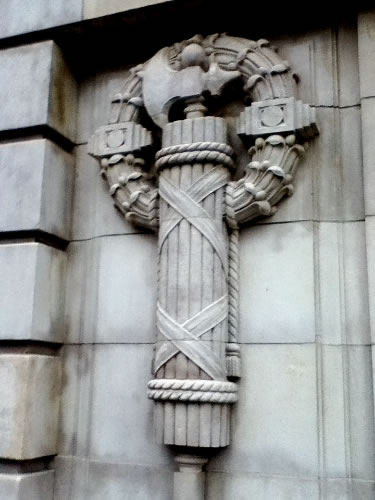During a discussion about race with Christian rapper Lecrae and Chick-fil-A CEO Dan Cathy, Pastor Louie Giglio was on his way to making a good point about slavery: That even to this day, white people are reaping the accumulated generational advantages that it provided. Then he stumbled:
We understand the curse that was slavery — white people do — and we say “That was bad,” but we miss the blessing of slavery, that it actually built up the framework for the world that white people live in, and lived in. And so, a lot of people call this “White Privilege” and when you say those two words, it just is like a fuse goes off for a lot of white people because they don’t want somebody telling them to check their privilege. And so I know that you and I both have struggled in these days with hey, if the phrase is the trip-up, let’s get over the phrase and let’s get down to the heart. Let’s get down to, “What then do you want to call it?”. And I say, maybe a great thing for me is to call it “White Blessing” — that I’m living in the blessing of the curse that happened generationally, that allowed me to grow up in Atlanta.
Here’s the clip:
I get what the good Pastor was trying to say, but I think his choice of words was terrible. It effectively rebrands what is supposed to be an unfair advantage as something nicer. Or to quote another Pastor, John Pavlovitz: “How positively Caucasian Evangelical of him.”
It’s difficult to overstate both how wrong and offensive Giglio’s statements are from a Biblical perspective and from a simple human decency perspective—and how much of an indictment of the white Evangelical Church in America a moment like this is.
Louie Giglio is dangerous in a way that is subtle but important. This is not your mother’s televangelist. He is not old guard Evangelical. He’s not from the stuffy, dusty, buttoned-up pipe organ cathedrals of Frank Graham and Jerry Falwell. He doesn’t bulldoze with damnation or pound a pulpit of brimstone warnings. He paints beautiful word pictures of the vastness of a loving God (who is decidedly male). He is engaging, passionate, and he has mastered the pastoral art of appearing spontaneous, while delivering surgically-precise language surrounded by swelling music and glowing lights, all crescendoing into an emotionally-manipulative moment that feels decidedly spiritual. (The modern megachurch blueprint is found here.)
…
Giglio’s comments on slavery and whiteness reveal a more nuanced kind of Prosperity Gospel; one offering favor (not for financial contribution, as the older guard pitched), but through American whiteness (though it would never be framed as explicitly). Much like its sister organization the GOP, the new Religious Right is a movement where power and privilege are evidence of God’s approval.
Combine Giglio’s influence with Lecrae’s massive fanbase and Cathy’s huge national teenage restaurant staff, and represented in a conversation like this one are millions of soon-to-be American voters, who are being indoctrinated into a religion of supremacy and misogyny in ways far more subtle than MAGA hats and racist diatribes—but that perpetuate the same gender disparities and racial inequities, all in a package so emotionally stimulating and that almost feels righteous.
Giglio isn’t stupid and he is self-aware. He will likely walk back these comments, do even greater theological gymnastics to connect the dots from a Middle Eastern Jesus to white American colonialism, or reframe the criticisms he’s getting as religious persecution to fuel his flock.
Pavlovitz was right: Giglio has already walked back what he said.
By the way, if the name Pastor Louie Giglio is familiar, it might be because you remember his getting removed from Barack Obama’s 2013 inauguration over anti-gay comments. He’s probably a bit tetchy about the recent Supreme Court ruling.
A more accurate term: White fascism
You’re probably already thinking of moving on to another page, but bear with me here — consider the actual meaning of the word before you dismiss it as hyperbole.
The word comes from from fascio, which means bundle in Italian. In ancient Rome, a fasces was a bundle of wood with an ax head, used as a symbol of leadership. The original Italian fascists were referring to bundles of people.
The key tenet of fascism is that society should be a hierarchy where increasingly smaller groups of betters should hold power over larger groups of lessers, all under the control of a single, strong, autocratic leader. This isn’t unique to fascism — it’s just that in fascism, the people at the top are “us” — where “us” is whoever defines the system.

Fascism is built on two pillars:
- A sense of rebirth. It says that “We, as a unified people, are ancient, our glory has waned, and we are due to rise again.” (Sound familiar?) It imbues the “us” at the top of the hierarchy with mythological importance.
- A sense of a distinct group identity in the form of a national identity.
Combine these two and you get fascism’s tenets:
- The nation is of the utmost importance.
- The people running the nation should be a narrowly defined “us”.
- “We” should rule because it’s more or less our destiny.
Does this sound even more familiar?
To find out more, it’s fantastically summarized in this video, White Fascism, by Ian Danskin, and it’s part of a series titled The Alt-Right Playbook:


